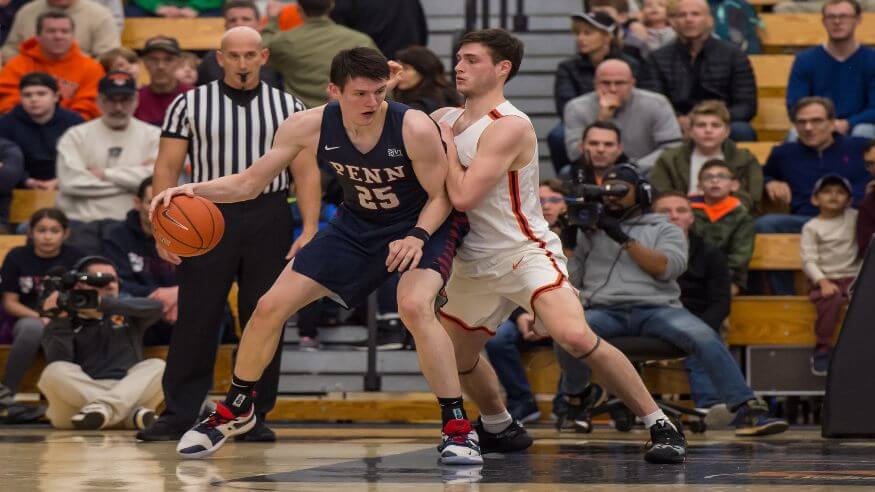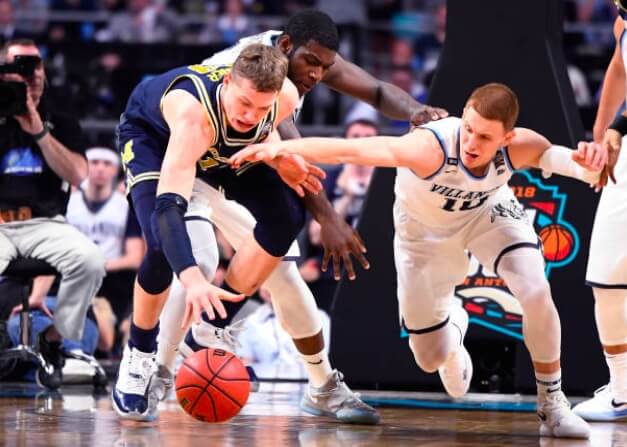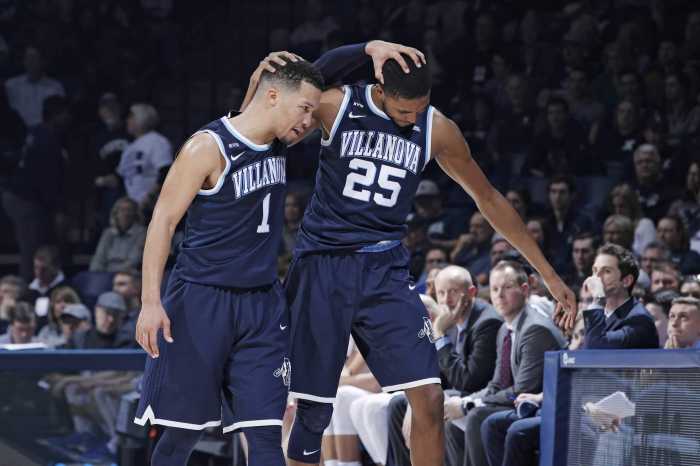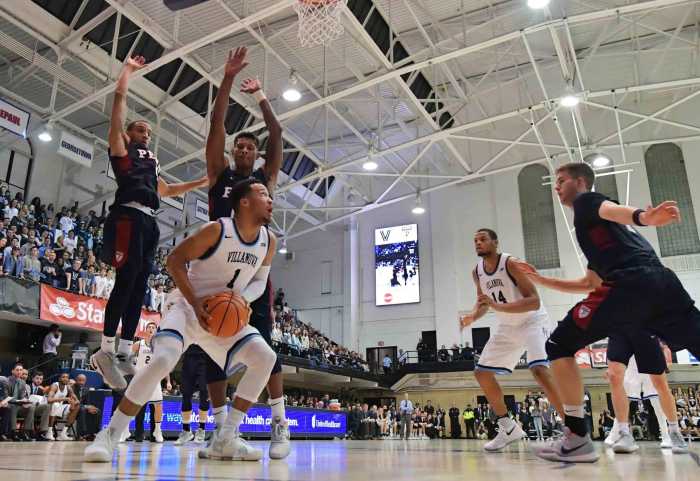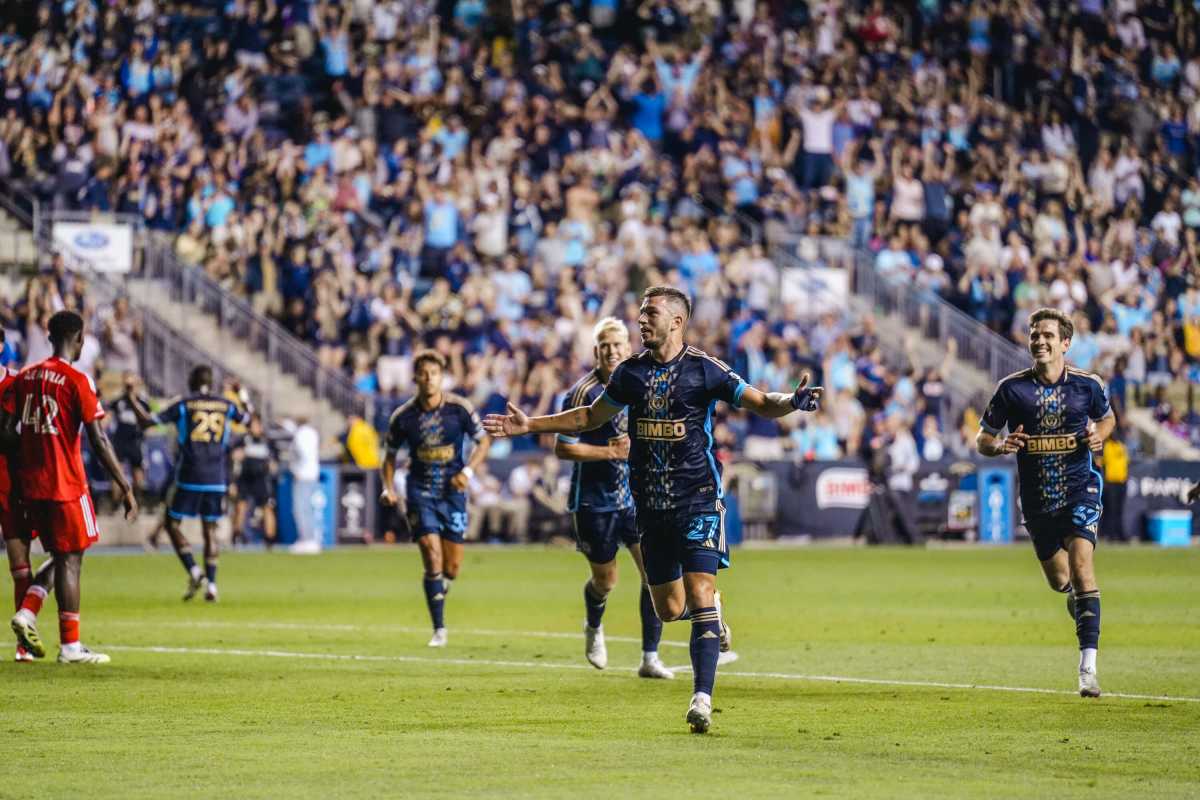Unlike 40 years ago, there will be no trips to the Final Four this year for the Penn Quakers—and that would be true even if Steve Donahue’s team had beaten archrival Princeton on Saturday at the Palestra. Neither the game nor the Ivy League is the same as when Bob Weinhauer guided the red-and-blue to Salt Lake City in 1979, where they lost to Michigan State and its precocious star, Earvin “Magic” Johnson.
The ’79 crew was on hand Saturday to watch a game in which Princeton started out 2-of-19 from the field, missing 12 shots in a row at one point, yet still was able to recover by halftime and eventually pull away down the stretch, winning 62-53. The win lifted the Tigers to an overall record of 9-5, 2-0 in the Ivies.
Both wins came against the Quakers, due to a scheduling quirk which had them going head to head on consecutive Saturdays for the first time in anyone’s memory.
“It’s definitely different,” said Donahue, whose 10-6 team looked so good while snapping Villanova’s 25-game Big 5 winning streak last month, has now dropped four straight.
“I don’t know how they feel. Probably pretty good about it now. But it was a weird week.”
The victorious Tigers didn’t argue about the scheduling quirk.
“The first time in so many years playing Penn back-to-back both teams made adjustments,” said Princeton senior guard Devin Cannady, who led the way with 20 points and 12 rebounds. “I thought we really dug deep.”
“We were not satisfied after that win. For us seniors it was our last time playing in the Palestra. We just doubled down and worked.”
So did the Quakers, who simply couldn’t get anything to fall either from the field or the line. “I thought we were getting the right shots. They just weren’t falling,” said Penn’s A.J. Brodeur, who scored 16 points on 6-for-17 shooting, pulled down 12 rebounds and blocked a career-high five shots.
“I feel so confident in those shots when I take them, especially five feet from the hoop. But if we played this game again, I’d take the same shots.”
Penn would love another shot at the Tigers, but that would have to be at the Ivy League Tournament in March, which was moved from the Palestra to Yale this year. To make the four-team field the Quakers know they can’t afford many slip-ups.
But Brodeur remembers when they were in an even worse bind not too long ago.
“We barely snuck in two years ago,” recalled Brodeur when the Quakers overcame a 0-6 start to squeeze into the field the last night of the regular season, then took top-seeded Princeton to overtime in the first round. “But I feel this is different from the run we made two years ago.”
“Since a lot of guys on this team have that 0-6 experience, I think we have the ability to bounce back from that. There’s no doubt in my mind, we’re a good enough team to be one of the top seeds in the tournament like last year.”
That’s when the Quakers won the entire thing, then gave top-seeded Kansas a first-round NCAA Tournament scare. To get back on that kind of roll Donahue said they need to make better decisions with the ball.
“From our standpoint, we can execute a lot better,” said Donahue, who also pointed to Princeton’s 16 offensive rebounds, which the Tigers turned into a bundle of second-chance points. Most of them came at the line where Princeton went 19-for-21 in comparison to Penn’s 7-for-13.
“What separated us from them is they played through the clock better and we settled. We’re not feeling good about who we are and how we’re playing We’ve got to figure out a way to play better.”
However, before they go back to the Ivy wars there’s this matter of the Big 5, where 2-0 Penn has a chance to either win it outright with wins at Temple and Saint Joseph’s the next two weeks or gain a piece of the Big Five with one victory.
“That’s going to be huge for us,” said Brodeur, after Penn shot 32.8-percent from the field and was pounded on the boards, 55-34. “If we can sneak out those wins and a Big 5 title it would be big, especially the way we started out.”
“We keep going back to the Villanova game as the model of how we should be playing every game. We’ve got some work to do for sure, but come March I think we’ll be putting on a show down at Yale in the Ivy Tournament.”
Knowing their track record, not even those 1979 Final Four Quakers honored Saturday would dare bet against them.



